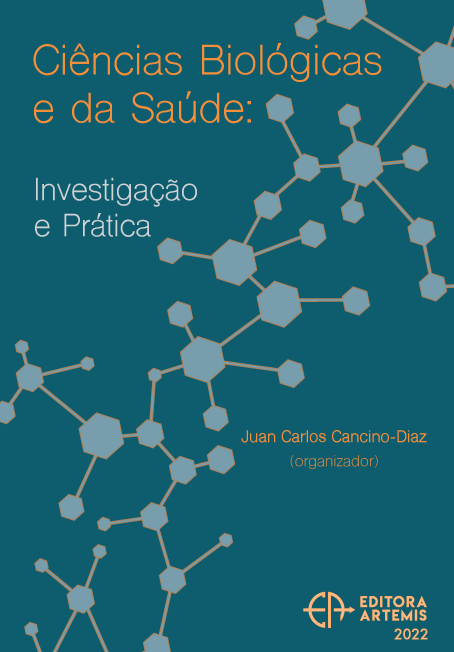
MEDO DA COVID-19 ENTRE ADULTOS BRASILEIROS
Introdução: O rastreamento de condições como medo da COVID-19 e percepção de que a pandemia representa um trauma pode ser útil à compreensão do sofrimento psicológico vivenciado pelos indivíduos no contexto pandêmico. Objetivos: i) avaliar o medo da COVID-19 de indivíduos adultos em dois momentos de 2021, ii) investigar se o medo pode representar variável intermediária na relação entre características demográficas e percepção de que a pandemia configura um trauma na vida dos indivíduos e iii) identificar os principais sentimentos relatados pelos participantes frente à pandemia. Métodos: Realizou-se duas coletas de dados (1º semestre: maio-junho e 2º semestre: novembro-dezembro de 2021). Informações demográficas e relacionadas à percepção da pandemia como trauma foram levantadas. O medo foi investigado a partir da Escala de Medo da COVID-19. A comparação dos escores de medo foi realizada por Análise de Variância (α=5%). Elaborou-se um modelo estrutural referente aos dados de cada semestre (trajetórias β; teste z; α=5%). Utilizou-se análise de similitude para identificação da estrutura textual dos relatos. Resultados: Participaram 12.399 adultos (1º semestre n=7.977; idade=38,5±13,7 anos e 2º semestre n=4.422; idade=39,9±13,8 anos), majoritariamente mulheres (67,7-68,5%). Observou-se maiores escores de medo no 1º semestre (F=415,857; p<0,001). As mulheres (β=0,13-0,15; p<0,001), os jovens (β= -0,07- -0,04; p<0,001) e portadores de problemas de saúde preexistentes (β=0,08-0,09; p<0,001) apresentaram maior medo da COVID-19. A relação entre renda, medo e trauma só foi significativa (β=-0,07; p<0,001) na coleta de dados do primeiro semestre. O núcleo central que representa os relatos foi a ‘pandemia’, contudo, no grupo com maior probabilidade de perceber a pandemia como trauma observou-se maior ênfase nas emoções. Conclusão: O medo da COVID-19 foi fator importante para percepção da pandemia como um trauma. As incertezas e o medo permearam os relatos, principalmente, dos indivíduos mais vulneráveis.
MEDO DA COVID-19 ENTRE ADULTOS BRASILEIROS
-
DOI: 10.37572/EdArt_2808226068
-
Palavras-chave: Medo; COVID-19; trauma psicológico; saúde mental
-
Keywords: Fear; COVID-19; psychological trauma; mental health
-
Abstract:
Introduction: Investigating the fear of COVID-19 and the perception of the pandemic as a trauma may be relevant for a better understanding of the subjective distress in individuals during the pandemic. Aims: i) to estimate the fear of COVID-19 of adult individuals at two time points during 2021, ii) to investigate whether the fear is an intermediate variable in the relationship between demographic characteristics and the perception of the pandemic as a psychological trauma, and iii) to identify the pandemic-related feelings reported by the participants. Methods: Data collection was carried out at two time points (first semester: May-June and second semester: November-December 2021). Demographic information and the perception of the pandemic as trauma were collected. The Fear of COVID-19 Scale was used in this study. The fear scores were compared between data collection time points by Analysis of Variance (α=5%). A structural model was elaborated for each time point (β trajectories; z-test; α=5%). Similarity analysis was used to identify the textual structure of the reports. Results: The total sample consisted of 12,399 adults (first semester n=7,977; age=38.5±13.7 years and second semester n=4,422; age=39.9±13.8 years), mostly women (67.7-68.5%). Higher fear scores were observed in first semester of 2021 (F=415.857;p<0.001). Women (β=0.13-0.15; p<0.001), young people (β=-0.07- -0.04; p<0.001) and those with pre-existing health problems (β=0.08-0.09; p<0.001) had greater fear of COVID-19. The relationship between income, fear, and pandemic as a trauma was only significant (β=-0.07; p<0.001) in the first semester of 2021. The central core that represented the reported feelings was 'pandemic', however emphasis on emotions was observed in the group most likely to perceive the pandemic as trauma. Conclusion: The fear of COVID-19 had an important role in the perception of the pandemic as a trauma. Uncertainties and fear permeated the feeling reports, especially in the most vulnerable individuals.
-
Número de páginas: 22
- Juliana Alvares Duarte Bonini Campos
- Bianca Gonzalez Martins
- Lucas Arrais de Campos
- João Marôco

